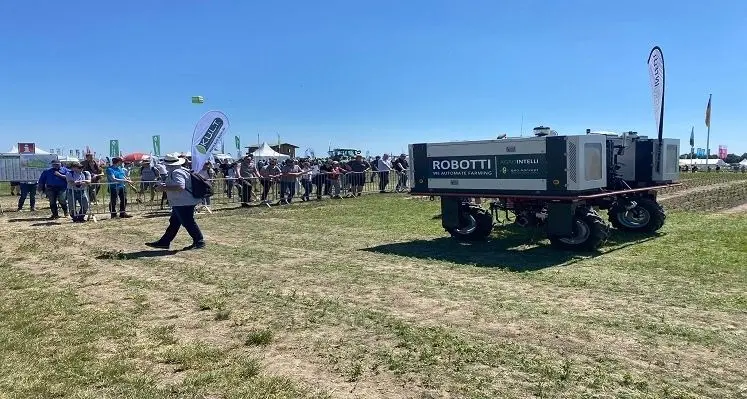The FarmRobotix platform celebrates premiere at the DLG Feldtage 2024, which will take place from 11-13 June at the estate Brockhof in Germany
Aimed at farmers, manufacturers, start-ups and technology providers, FarmRobotix offers an international platform farmers and experts seeking compact and comprehensive information on the latest developments in robotics, AI, automation and digital solutions in crop production. Moreover, besides the option to explore innovative technologies, the platform also offers networking and knowledge sharing opportunities to representatives from science and research as well as development engineers, investors and venture capitalists.
With a focus on farming requirements for digital technologies, FarmRobotix plays a role in solving the challenges that lie in the application of digital and autonomous technologies in crop farming. For instance, although a plethora of digital solutions are available to farmers for performing crop cultivation tasks, each digital solution provider supplies a customised software system to use the digital tools and data. Therefore, their application requires prior knowledge on part of the user.
This is where the FarmRobotix system comes into picture. Florian Schiller, an expert in digitalisation at the International DLG Crop Production Centre (IPZ) in Bernburg, Saxony-Anhalt, explained that the FarmRobotix platform could play a role in providing impetus in the dialogue between farmers, manufacturers and science in order to make the digital applications of different manufacturers compatible with each other.
Schiller further explained the complexity faced by robots in crop cultivation, since the difficulty level of the tasks to be performed by agricultural robots was comparatively greater than the tasks involved in industrial production.
DLG’s IPZ farm is part of several research projects on digitalisation and AI in crop production, including the NaLamKI project funded by Germany’s Federal Ministry of Economic Affairs. NaLamKI which stands for ‘Sustainable Agriculture with AI,’ is aimed at developing AI services for agriculture, capable of analysing data from conventional and autonomous agricultural machinery, satellites and drones, combining them in a software service platform and make the results accessible through open interfaces.
As an associated partner in the project, the IPZ is working on the early detection of fungal diseases in wheat using AI. The aim of AI-supported detection of fungal diseases, which is being researched in the NaLamKI project, is to use multi- and hyperspectral image analysis to establish when a fungal infection has taken place in a crop. Apart from fungal pathogens however, the spectral properties of the leaf surface are influenced by a variety of external factors such as drought or plant nutrition.
"It is therefore always crucial for AI systems that the data delivers accurate information about the properties to be recognised,” said Schiller. “Otherwise, AI models do not reflect what they are supposed to provide information about.”
For more information, visit: https://dlg-feldtage.de/en/




